

Since April 2’s “Liberation Day” tariff announcements from US President Donald Trump, the stock market (and your super) have probably taken a hit in the wrong direction. The ensuing uncertainty driven by geopolitical volatility now faces its ultimate test with news that a US-China trade deal might actually be closer than we thought.
Dow Jones futures, which we see before Wall Street starts trading at 9:30am each day, were up 270 points (or 0.7%) on the revelation that US Treasury Secretary Scott Bessent and top-ranking trade official Jamieson Greer were set to meet with their Chinese counterparts this week on neutral ground in Switzerland.
Believe it or not, but those hanging out at the New York Stock Exchange are excitable types, with an inclination towards positivity negativity. And while you might think this irrepressible inclination of Yanks is excessive and problematic, a brief history of investing tells us it pays to be positive when it comes to markets.
Back in March, Fidelity looked at 6 reasons for investing “right now”, even before we knew about Trump and his big board of reciprocal tariffs.
Their reasons were:
The Fidelity team’s research found even if $5,000 was invested at the "worst" possible time each year—that is, when the market was at its peak—it would still significantly outperform a cash allocation over time, demonstrated by this chart.
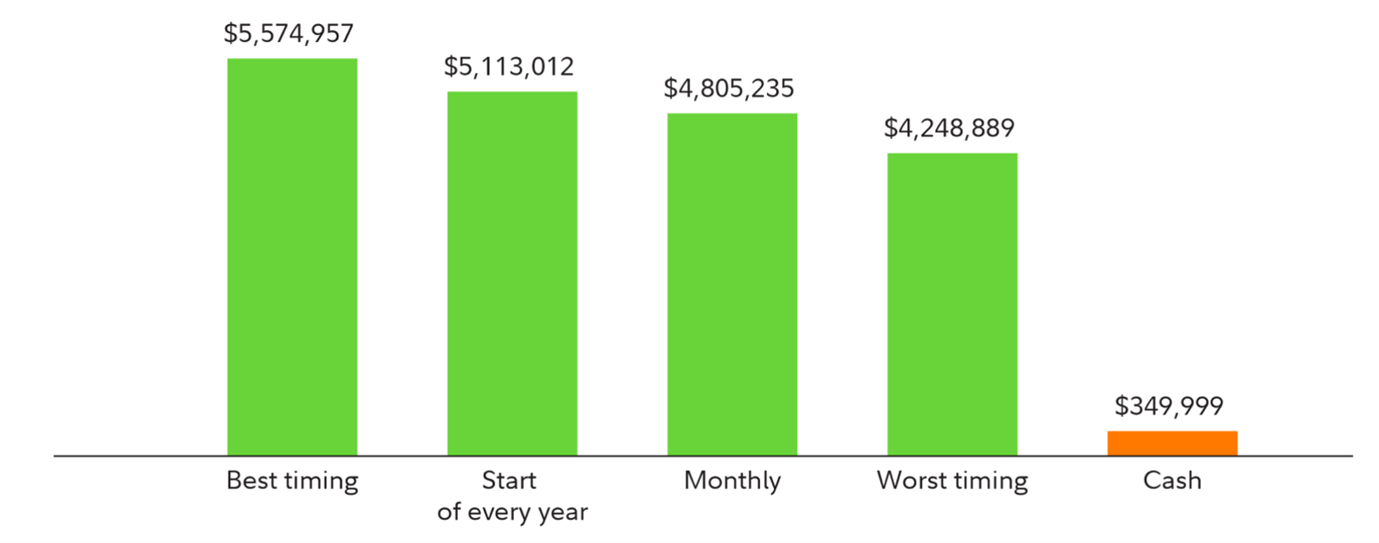
Their research also showed that when you invest your money actually has very little effect on the average, long-term performance of your portfolio:
“Even investing during a recession has historically provided an average expected return in line with other, less volatile parts of the business cycle,” they found.
“When you get into the market isn't likely to make a big difference in your long-term growth potential—but being out of the market, even for a short period, certainly can,” Fidelity maintains.
“As the chart below shows, a hypothetical investor who missed just the best 5 days in the market since 1988 could have reduced their long-term gains by 37%.”
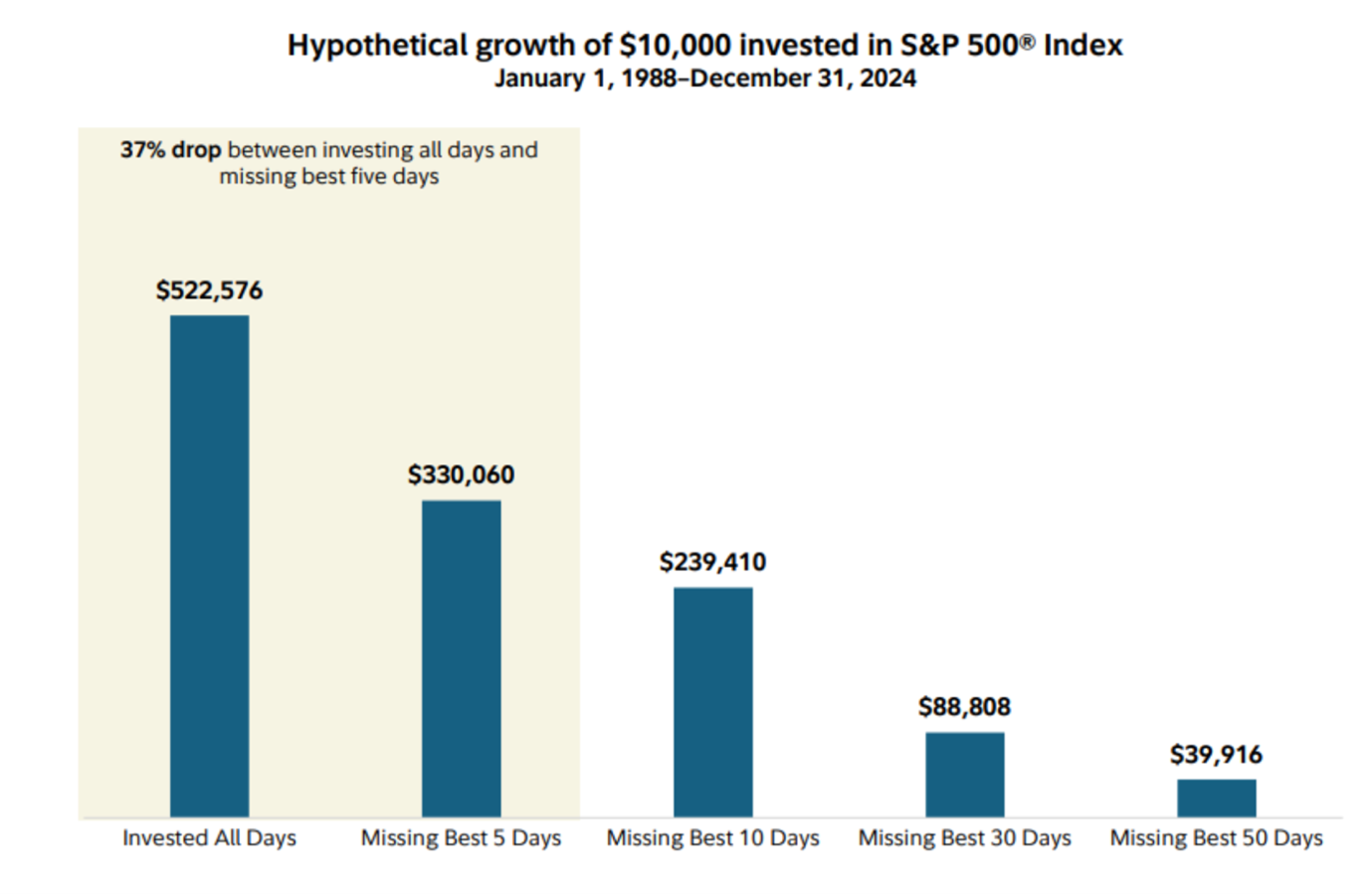
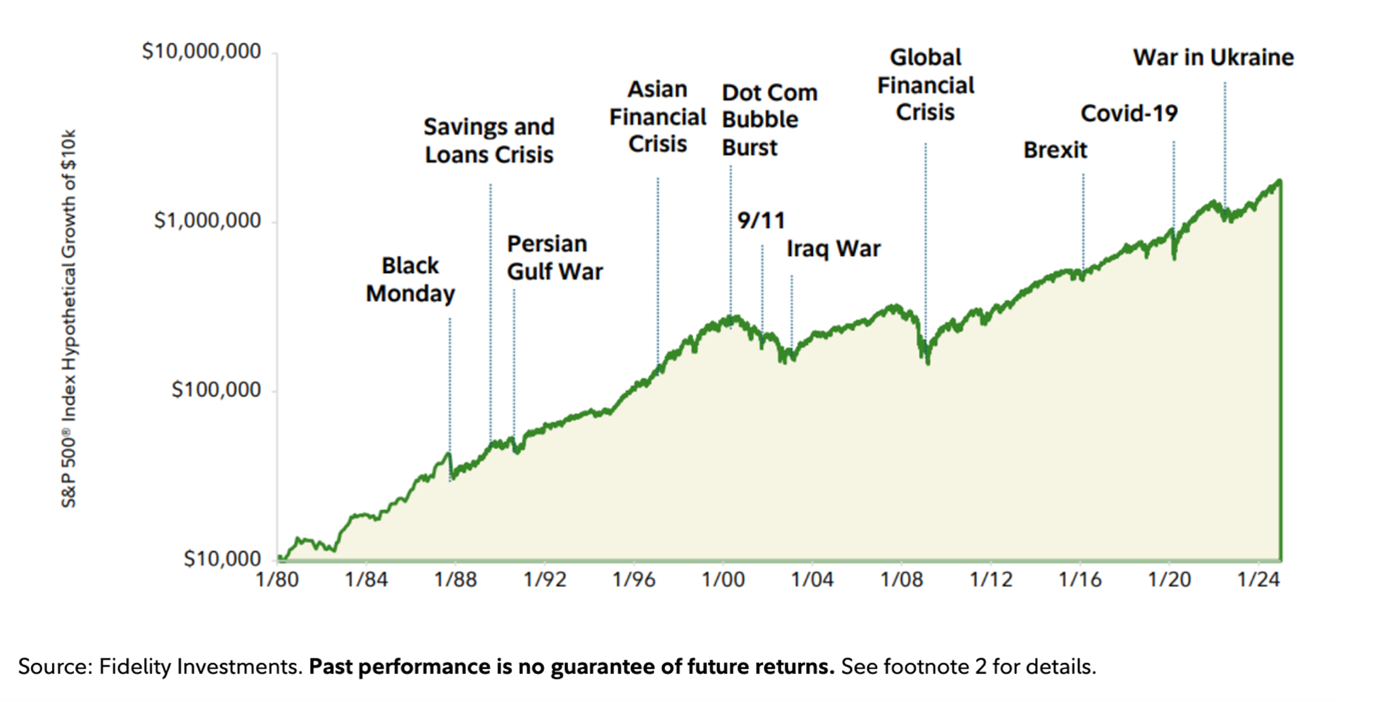
“Be it war, recession, or even the COVID-19 pandemic, stocks have historically shown resilience during short-term volatility, which could potentially lead to long-term gains for investors,” the Fidelity team asserts, and the market history generally supports it.
In fact, investing when a crisis is at its scariest can be very rewarding in many market situations, provided you can hold your nerve better than most.
4. Investing in the market for a longer period may potentially increase your chances of experiencing positive outcomes.
This chart shows the longer you trust stocks, the “luckier” you will be. As students of market history, we know it’s not a matter of luck, but more on that later.
5. Which party controls Washington has historically tended to have little effect on stock returns
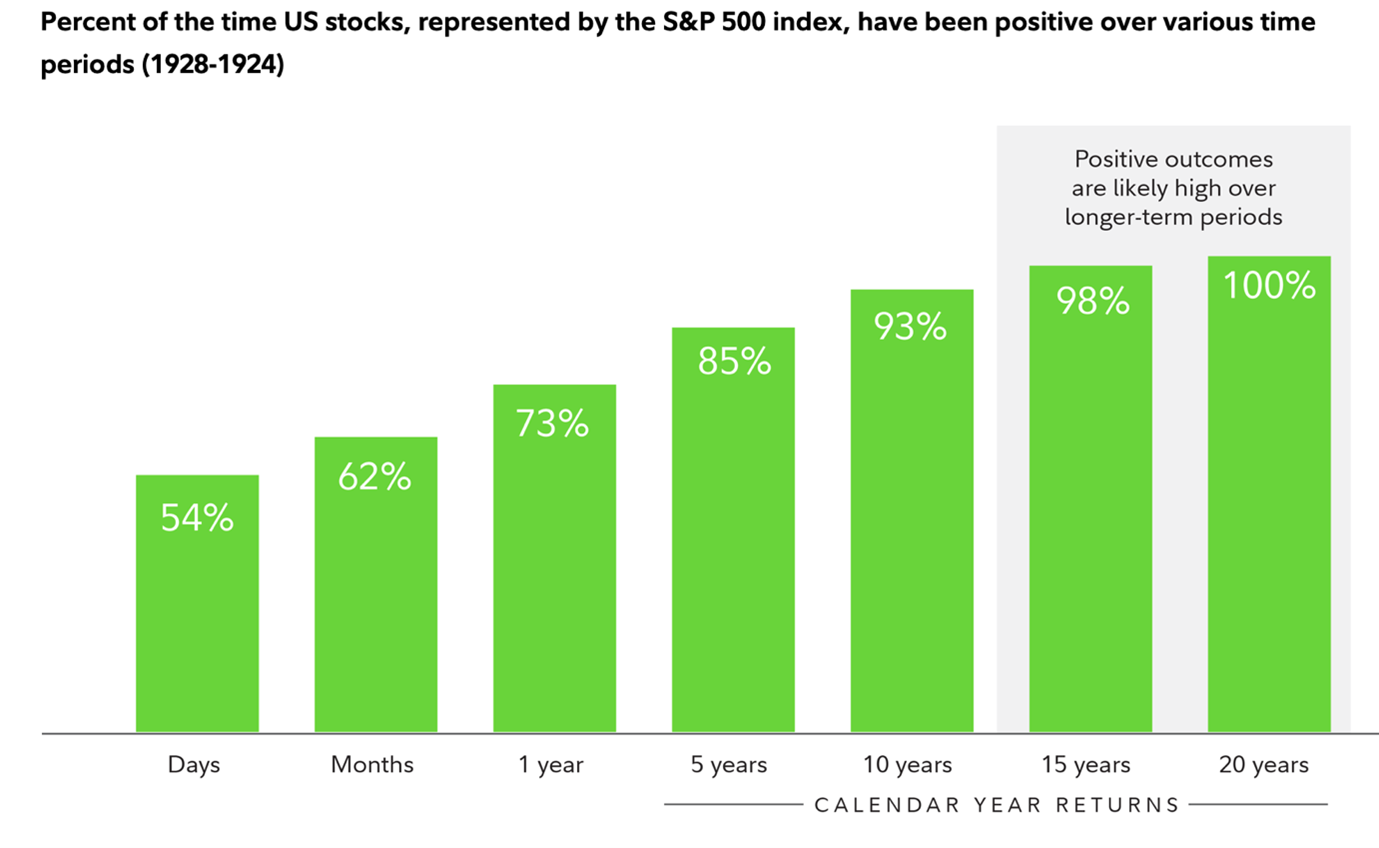
The colour of the man’s necktie behind the White House’s famed Resolute Desk bears little relevance to market performance. At least in an historical context, according to Fidelity:
“Although popular myths sometimes suggest that one party or the other is "better" for market returns, the historical data does not bear out these theories,” Fidelity argues.
“The S&P 500 has historically averaged positive returns under nearly every partisan combination, as the chart below shows.”
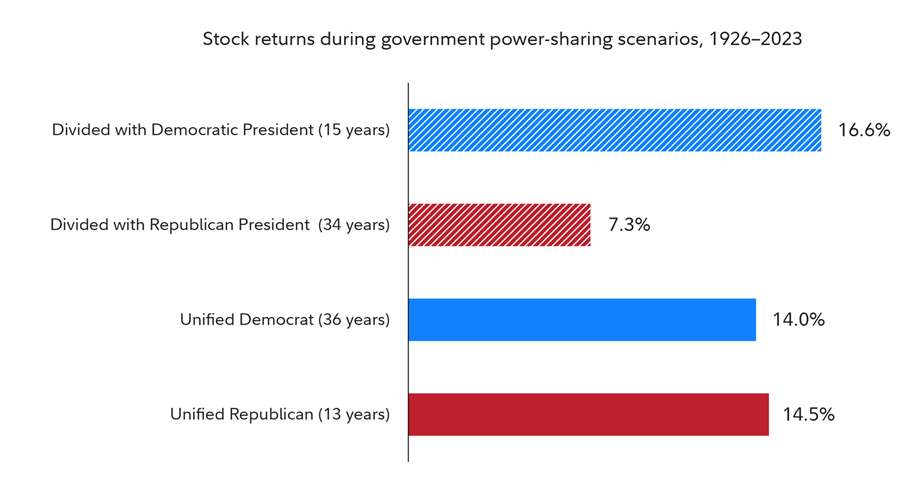
Donald Trump could test out this historical observation, though I doubt it will bend to his whims.
6. Many investors have worried too much about rising deficits and persistent inflation.
While deficits and inflation aren’t easily swept aside, issues stocks have typically risen in spite of their pressures. Instead, their persistent presence builds a convincing case of why one should always be a diversified investor. Stocks, bonds, property, other assets and cash should all have a home in your in your investment portfolio basket.
My approach with my financial planning clients is to be diversified between stocks and fixed interest/bond investments, as well as property. At various times, we adjust the mixture depending on the current market forces, but these assets are typically persistent.
After a market crash, the percentage of stocks we hold would typically be high. This is because history tells us that big rebounds follow market-smashings. Then after a few years of rising stock prices and higher interest rates, we’d look to add more bond-like products to the portfolio.
Fidelity continually makes the sage point that “past performance is no guarantee of future results” and I agree, carry through the same warning. History, however, says that being too cautious and remaining permanently scared about the stock market is not a great wealth-building plan.
Finally, it’s always important when considering a study like Fidelity’s to look at how it was conducted. Fidelity analysed returns data for a fictional individual exposed to the total market. That includes exchange traded funds (ETFs) like Vanguard’s Australian Shares Index ETF (VAS), which captures the Australian stock market, while iShares’ S&P 500 ETF (IVV) embraces the US stock market.
These products form great bases for a portfolio, but for better or safer returns we often add other stocks and investment products to the mix for greater diversification and appropriateness, based on where the market is at the time.
We also use hedging when we think the Australian dollar is likely to rise which can reduce overseas returns.
I hold out hope. That the Trump team expedites its trade deals. While I know that it could create market problems in the short-term, they’re likely to be just that. Short-term.
If we adopt the saccharin optimism of our American counterparts over the long-term, we may find buying opportunities in areas we haven’t considered yet as a result.
As usual, it pays to be a student of financial history!